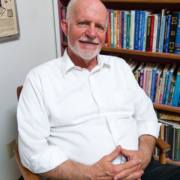Planting the seeds of wisdom and cultivating rare flowers
Last week we looked at the overvaluing of knowledge and undervaluing of wisdom in our culture. We saw that knowledge is indeed at our beck and call. While watching a football game or a movie, I touch a button and ask the genie inside my phone “For whom did the new Bears coach play?” or “Where is that awesome location for the film I’m watching?”
But wisdom is not so easy to come by. One person differentiated them in this way: knowledge was memorizing facts, understanding was comprehending the significance of those facts, and wisdom was putting them into practice in my life.
Others draw parallels between wisdom and common sense. Unfortunately, common sense is a flower that does not grow in everyone’s garden. .
How do we build wisdom in our children? How do we cultivate the rare flower of common sense?
As we saw last week, the Bible gives the source of wisdom as the “Fear of the Lord.” The book of James encourages us to ask God for wisdom and He will readily give it to those who single-mindedly seek God’s will. And in James 3 it gives a definition of the wisdom from above: “[it] is first pure, then peaceable, gentle, open to reason, full of mercy and good fruits, impartial and sincere. And a harvest of righteousness is sown in peace by those who make peace.” (James 3:17-19)
A practical way to build such wisdom in our children was through building a Book of Proverbs journal. The first step was to take a spiral notebook and make a chart in the notebook by drawing a line down the middle of the first page. At the top of the left-hand column, we had a daughter write: The Wise. At the top of the right-hand column she wrote: The Fool. In the far left margin, our daughter was to write down the reference for each chapter and verse that said something about The Wise or about The Fool and then think about the contrast.
For example, the first entry was Prov. 1:7: “The fear of the Lord is the beginning of knowledge; fools despise wisdom and instruction.” The reference went in the far left column and in the right-hand column, Hope wrote “fools despise wisdom and correction.” Later we came upon Prov. 9:8: “Do not reprove a scoffer, or he will hate you; reprove a wise man, and he will love you.” Hope saw the contrast quickly — under The Wise she wrote, “correct a wise man and he will love you.”
Depending on the age of the child, you may need to read through Proverbs together. Look for the specific topic: Wise vs. Fool, Money, Work, Parent-Child relationships, hot-tempered people, etc. Stick with one topic for the first run through the book, then go back and skim for the next topic.
Each time you go through, your child will know more and more how God looks at life “on the street.” (Prov. 1:20) What wisdom can be gained from just looking around you? For some topics like bribery, one might need to be more careful as to what the wisdom principle is. Proverbs 17:8 or 21:4 looks like bribery is OK. Therefore, verses in Proverbs need to interpreted with clear instruction elsewhere like Deuteronomy 16:19: “You must not distort justice; you must not show partiality; and you must not accept bribes, for a bribe blinds the eyes of the wise and subverts the cause of those who are in the right.” Though bribery looks like it “works” on the streat, God soundly condemns it in Isaiah, Psalm 15 and elsewhere. Have your child add these corrections in their journal as well.
Some might want to shy away from these gray areas in Proverbs. Don’t. Discussing these and comparing them with other scripture builds wisdom. Your children learn to become discerning and learn that a concept is not “biblical” unless it sums up all that the Bible says on that topic.
In addition to building a journal, you also cultivate wisdom and common sense by applying what you have been learning to everyday life, from your own child’s wise or foolish actions or by looking at foolishness in the news or complimenting wise actions of others whom your family knows.
Another wisdom builder is by applying Proverbs 22:3 to new situations: “The prudent see danger and take refuge, but the simple keep going and pay the penalty.” This verse came to my attention when my granddaughter damaged the lock on my car door without realizing that she could break it. She apologized and said it was an accident. I corrected her. Yes, it was unintentional, but it was not an accident. An accident is something unplanned and unavoidable. I pointed out that the damage could have been avoided with a simple question: “I wonder what could go wrong if I jam this stick into this lock?”
Training one’s child to ask this simple question before acting (“What could go wrong if I do this or that?”) will cause one’s child to grow greatly in what we call common sense and recognize as wisdom.
Forcing myself to work on wisdom instead of getting angry (the lock is still not fixed) took a lot of work. I had to ask the Lord to give me patience and grace and I had to remember the many times when I was young that I did things that “I didn’t mean to” that broke one thing or another. But I am trusting that the return to this idea again and again will cultivate the flower of common sense in her garden.
Walking together, Christopher
Family Ministries Director
https://www.picktime.com/AppointmentswithChristopher









Leave a Reply
Want to join the discussion?Feel free to contribute!